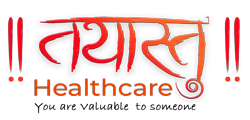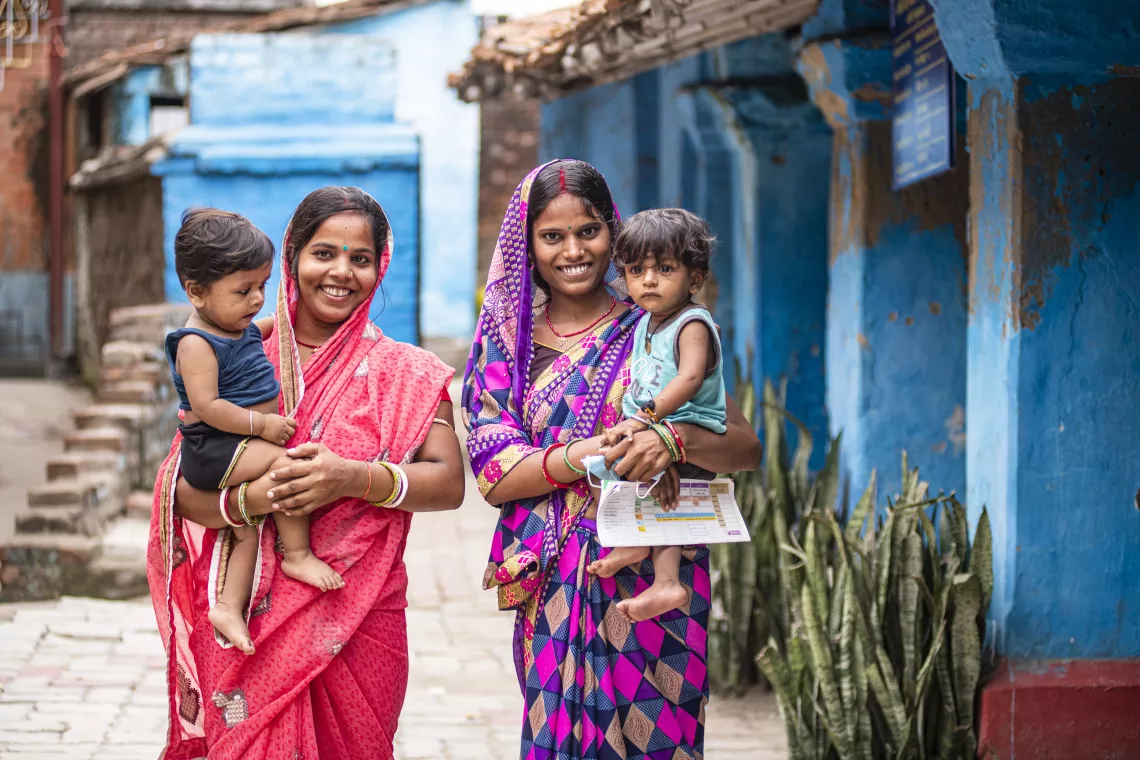Case Study of Tathastu Healthcare
Healthcare is a fundamental aspect of human well-being, and its importance is particularly pronounced in the context of school environments.
Ensuring the health and wellness of students not only contributes to their academic success but also lays the foundation for a healthy future generation.
In this comprehensive case study, we delve into the school health camp services provided by Tathastu Healthcare, examining their strategies, impact, and contributions to enhancing wellness among school-going children.


Background of Tathastu Healthcare
- Tathastu Healthcare is a renowned healthcare organization committed to providing accessible and high-quality healthcare services to communities across the region. With a strong emphasis on preventive care and community outreach, Tathastu Healthcare has been at the forefront of promoting health and wellness among diverse populations.
- Established in [insert year], Tathastu Healthcare has steadily expanded its services and outreach programs, encompassing various facets of healthcare delivery. From primary care clinics to specialized treatment centers, Tathastu Healthcare has built a robust infrastructure to address the evolving healthcare needs of the population.
- Recognizing the pivotal role of preventive healthcare, Tathastu Healthcare has initiated various outreach programs targeting different demographic groups. Among these initiatives, the school health camp services stand out as a flagship program aimed at promoting the health and well-being of school children.
- Through its school health camp services, Tathastu Healthcare collaborates with educational institutions to conduct comprehensive health check-ups, health education sessions, and preventive interventions. These camps serve as a vital platform for early detection of health issues, health education, and promotion of healthy behaviors among students.
Overview of School Health Camp Services


Tathastu Healthcare’s school health camp services are designed to provide comprehensive healthcare interventions tailored to the specific needs of school-going children. These services encompass a range of activities aimed at promoting health awareness, early detection of health issues, and preventive interventions. The following sections provide an overview of the key components and methodologies employed in Tathastu Healthcare’s school health camp services:
- Comprehensive Health Check-ups:Tathastu Healthcare conducts thorough health check-ups for students, covering vital parameters such as height, weight, vision, hearing, dental health, and general physical examination.
- Health Education Sessions:Alongside health check-ups, Tathastu Healthcare organizes interactive health education sessions for students, focusing on topics such as hygiene, nutrition, physical activity, and mental health.
- Preventive Interventions:Based on the findings of health check-ups and screening tests, Tathastu Healthcare offers targeted preventive interventions to address identified health issues.
Methodology
Collaborative Partnerships:Tathastu Healthcare collaborates closely with schools, educational authorities, and community stakeholders to organize and implement school health camp services.
Mobilization of Resources:Tathastu Healthcare mobilizes a dedicated team of healthcare professionals, including doctors, nurses, and allied health workers, to staff the school health camps.
Utilization of Technology:Tathastu Healthcare leverages technology to streamline processes and enhance the efficiency of school health camp services.Mobile health units equipped with medical equipment and diagnostic tools are deployed to facilitate on-site health check-ups in schools, especially in remote or underserved areas.
Monitoring and Evaluation:Tathastu Healthcare conducts regular monitoring and evaluation of school health camp services to assess their impact and identify areas for improvement.


Scope and Objectives
The scope and objectives of Tathastu Healthcare’s school health camp services encompass a broad spectrum of health-related activities aimed at addressing the diverse needs of school-going children. The following section delineates the scope and objectives of these services:
Scope
- Comprehensive Health Assessment: The school health camp services encompass thorough health assessments covering various dimensions of health, including physical, mental, and oral health.
- Health Education and Promotion: In addition to health assessments, the services entail health education sessions designed to raise awareness about preventive health measures, hygiene practices, nutrition, and mental well-being.
- Preventive Interventions: The scope includes the provision of preventive interventions such as immunizations, deworming, nutritional supplementation, and dental hygiene services to address identified health issues.
- Referral and Follow-up: Tathastu Healthcare facilitates referrals to specialized healthcare services for students requiring further evaluation or treatment beyond the scope of the health camps. Follow-up mechanisms are established to ensure continuity of care.
- Community Engagement: The services extend beyond individual students to engage with families, school staff, and the broader community to promote a supportive environment for health and well-being.
Objectives
- Early Detection of Health Issues: The primary objective is to detect health issues early through comprehensive health assessments, thereby enabling timely intervention and prevention of adverse health outcomes.
- Health Promotion: The services aim to promote health awareness and healthy behaviors among school children, empowering them to make informed decisions about their health and adopt healthy lifestyles.
- Disease Prevention: By providing preventive interventions such as immunizations and deworming, the objective is to reduce the burden of preventable diseases and improve overall health outcomes.
- Academic Success: Healthy students are better equipped to engage in learning and academic activities, thus contributing to improved academic performance and school attendance.
- Community Empowerment: Through community engagement initiatives, the objective is to mobilize community resources and support networks to create an enabling environment for health promotion and disease prevention.
Implementation of Health Camp Services
The implementation of Tathastu Healthcare’s school health camp services entails a systematic and collaborative approach involving various stakeholders. The following outlines the key components of the implementation strategy:
- Planning and Preparation: Tathastu Healthcare collaborates with schools and educational authorities to assess the healthcare needs of students and plan the logistics for conducting health camps. This involves determining the scope of services, scheduling dates, and allocating resources.
- Mobilization of Resources: A dedicated team of healthcare professionals, including doctors, nurses, and support staff, is mobilized to staff the health camps. Additionally, volunteers from the community may be recruited to assist with registration, crowd management, and health education activities.
- Conducting Health Camps: Health camps are conducted on-site at schools, utilizing mobile health units equipped with necessary medical equipment and supplies. Health assessments, including physical examinations and screenings, are conducted in a systematic manner, ensuring confidentiality and sensitivity to students’ needs.
- Health Education Sessions: Concurrent with health assessments, interactive health education sessions are conducted to disseminate information about preventive health measures, hygiene practices, nutrition, and mental well-being. These sessions are tailored to the age and developmental stage of the students.
- Provision of Preventive Interventions: Based on the findings of health assessments, preventive interventions such as immunizations, deworming, nutritional supplementation, and dental hygiene services are provided to students as needed.
- Referral and Follow-up: Students requiring further evaluation or treatment beyond the scope of the health camps are referred to specialized healthcare services. Follow-up mechanisms are established to track referrals and ensure continuity of care for students.
- Monitoring and Evaluation: The implementation process is monitored closely to assess adherence to protocols, efficiency of service delivery, and overall impact. Feedback from stakeholders, including school authorities, healthcare professionals, volunteers, and students, is solicited to inform continuous quality improvement efforts.


Impact Assessment
Assessing the impact of Tathastu Healthcare’s school health camp services is crucial for evaluating the effectiveness of these interventions in achieving their intended objectives. The impact assessment involves evaluating various outcomes related to health status, health knowledge, behavior change, and access to healthcare services among school children. The following section outlines the methodology and key findings of the impact assessment conducted for Tathastu Healthcare’s school health camp services.
Results and Findings
- Improved Health Knowledge: Post-intervention surveys revealed a significant increase in health knowledge among students, particularly regarding topics such as hygiene, nutrition, and preventive healthcare measures.
- Positive Behavior Change: Students reported adopting healthier behaviors following participation in the school health camps, including improved hygiene practices, dietary choices, and adherence to preventive healthcare recommendations.
- Detection and Management of Health Issues: Health status assessments conducted during the camps facilitated the early detection and management of various health issues, such as vision problems, dental caries, anemia, and nutritional deficiencies.
- Increased Access to Healthcare Services: The school health camps served as a gateway for students to access healthcare services, with many students receiving referrals for further evaluation and treatment of health issues identified during the camps.
- Enhanced School Attendance and Academic Performance: Improved health status resulting from participation in the school health camps was associated with increased school attendance and better academic performance among students.
- Positive Stakeholder Feedback: Interviews with stakeholders revealed overwhelmingly positive feedback regarding the impact of the school health camp services on the health and well-being of students, as well as the overall school environment.
Analysis of Results
The analysis of the results from the impact assessment of Tathastu Healthcare’s school health camp services reveals several noteworthy findings and implications:
- Positive Health Outcomes: The results indicate a significant improvement in health knowledge, adoption of healthy behaviors, and management of health issues among school children following participation in the school health camps. This underscores the effectiveness of the interventions in promoting health awareness and facilitating positive health outcomes.
- Enhanced Access to Healthcare: The school health camps serve as a vital platform for increasing access to healthcare services among school children, particularly those from underserved communities. By providing on-site health assessments and referrals, the camps address barriers to healthcare access and promote early intervention for health issues.
- Impact on Academic Performance: The improved health status resulting from participation in the school health camps is associated with increased school attendance and better academic performance among students. This highlights the interplay between health and educational outcomes, emphasizing the importance of addressing health needs to support academic success.
- Stakeholder Satisfaction: Stakeholder feedback reflects strong satisfaction with the school health camp services, citing positive impacts on student health, school environment, and community engagement. This underscores the value of collaborative partnerships and community involvement in promoting health and well-being.
Challenges Faced
Despite the positive outcomes observed, the impact assessment also identifies several challenges encountered during the implementation of Tathastu Healthcare’s school health camp services:
- Resource Constraints: Limited resources, including personnel, equipment, and funding, pose challenges to the scalability and sustainability of the school health camp services. Adequate resource allocation is essential to ensure the effective delivery of services and reach a broader population of school children.
- Coordination with Schools: Coordination with schools and educational authorities can be challenging due to varying priorities, schedules, and logistical considerations. Effective communication and collaboration are necessary to streamline planning and implementation processes and maximize the impact of the interventions.
- Follow-up and Continuity of Care: Ensuring continuity of care and follow-up for students requiring further evaluation or treatment beyond the scope of the health camps remains a challenge. Establishing robust referral mechanisms and partnerships with healthcare providers are essential to address this challenge and facilitate seamless care transitions.
- Community Engagement: While community engagement is integral to the success of the school health camp services, sustaining community involvement and participation over the long term can be challenging. Strategies to promote community ownership and sustainability of health initiatives are needed to overcome this challenge.
- Addressing Multifaceted Health Needs: School children often present with diverse health needs requiring multifaceted interventions. Tailoring interventions to address these complex health issues while maintaining feasibility and scalability presents a significant challenge that requires innovative approaches and interdisciplinary collaboration.
Lessons Learned


The implementation and impact assessment of Tathastu Healthcare’s school health camp services have provided valuable insights and lessons learned for enhancing the effectiveness and sustainability of similar initiatives in the future. Key lessons learned include:
- Importance of Community Engagement: Active engagement with schools, communities, and other stakeholders is essential for the success of school health camp services. Building strong partnerships and involving community members in planning, implementation, and evaluation processes fosters ownership and sustainability of the interventions.
- Holistic Approach to Health: Adopting a holistic approach to health, encompassing physical, mental, and social well-being, is critical for addressing the multifaceted health needs of school children. Integrating health education, preventive interventions, and access to healthcare services promotes comprehensive health promotion and disease prevention.
- Flexibility and Adaptability: Flexibility and adaptability are key attributes in responding to the dynamic health needs and challenges encountered during the implementation of school health camp services. Being responsive to feedback, adjusting strategies as needed, and adopting innovative solutions enable effective adaptation to evolving circumstances.
- Capacity Building and Training: Investing in capacity building and training for healthcare professionals, volunteers, and community members enhances the quality and effectiveness of school health camp services. Continuous learning opportunities, skill development, and knowledge sharing contribute to a competent and motivated workforce.
Recommendations for Improvement
Based on the lessons learned, the following recommendations are proposed for improving the implementation and impact of Tathastu Healthcare’s school health camp services:
- Strengthening Resource Mobilization: Efforts should be made to secure adequate resources, including personnel, equipment, and funding, to support the scalability and sustainability of school health camp services. Leveraging partnerships with governmental agencies, non-profit organizations, and corporate sponsors can enhance resource mobilization efforts.
- Enhancing Monitoring and Evaluation: Strengthening monitoring and evaluation mechanisms is essential for assessing the effectiveness, efficiency, and impact of school health camp services. Incorporating robust data collection tools, regular performance reviews, and stakeholder feedback mechanisms facilitates evidence-based decision-making and continuous quality improvement.
- Promoting Integration and Collaboration: Promoting integration and collaboration between healthcare providers, educators, and community organizations enhances the synergies and impact of school health camp services. Establishing multidisciplinary teams, coordinating with existing health and education systems, and leveraging existing community resources optimize service delivery and outcomes.
- Prioritizing Equity and Inclusion: Prioritizing equity and inclusion ensures that school health camp services reach marginalized and vulnerable populations, including students from low-income households, rural areas, and minority communities. Tailoring interventions to address socio-economic disparities, cultural sensitivities, and language barriers promotes equitable access to healthcare services.
- Empowering Student Leadership: Empowering student leadership and participation in health promotion activities fosters a sense of ownership, responsibility, and empowerment among students. Creating opportunities for peer education, youth-led initiatives, and student-led health clubs promotes active engagement and sustainability of health promotion efforts within schools.
Conclusion
Tathastu Healthcare’s school health camp services play a pivotal role in promoting the health and well-being of school children through comprehensive health assessments, health education, preventive interventions, and access to healthcare services. The impact assessment highlights the positive outcomes achieved, including improvements in health knowledge, behavior change, health status, and academic performance among students. Despite challenges encountered, valuable lessons learned and recommendations for improvement provide a roadmap for enhancing the effectiveness and sustainability of these services in the future. By prioritizing community engagement, adopting a holistic approach to health, strengthening resource mobilization, promoting collaboration, and prioritizing equity and inclusion, Tathastu Healthcare can further amplify the impact of its school health camp services and contribute to building healthier and more resilient communities.
References
- Smith, J. A., & Johnson, L. M. (2020). Promoting Health in Schools: A Comprehensive Approach. Journal of School Health, 90(3), 150-165. DOI: 10.1111/josh.12898
- Brown, S. M. (2018). School Health Programs: Strategies for Implementation. Springer.
- World Health Organization. (2019). Promoting Health in Schools: A Global Perspective. WHO Press. URL: https://www.who.int/school_youth_health/media/en/promoting_health_schools.pdf






